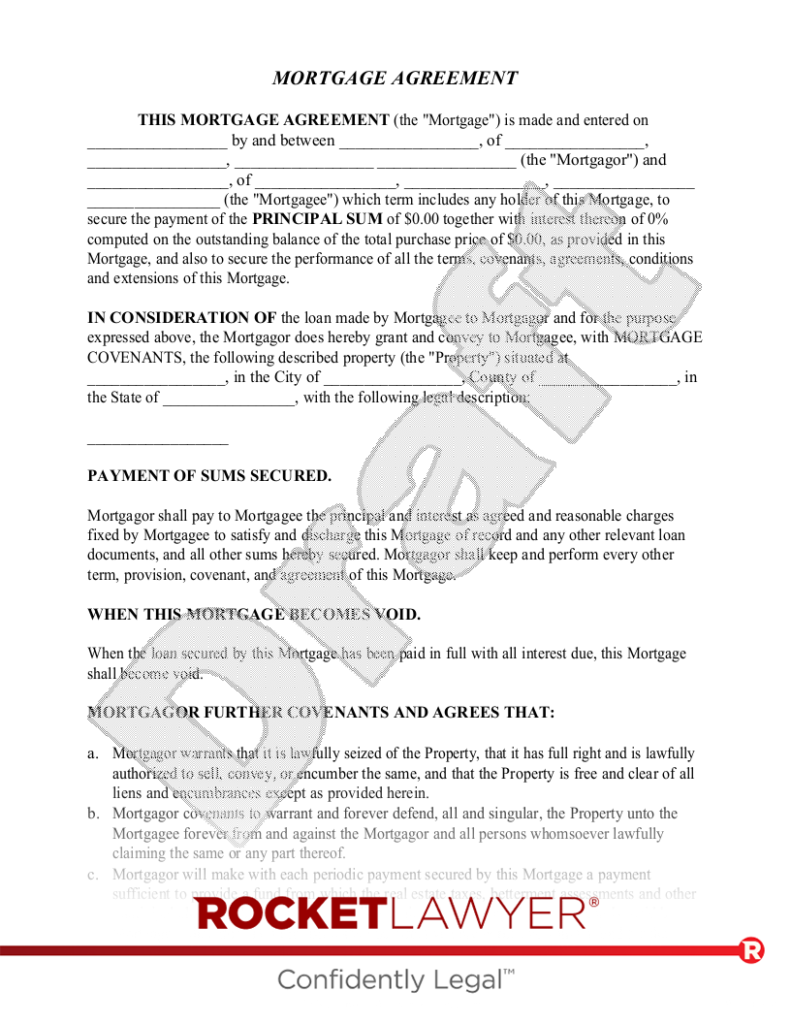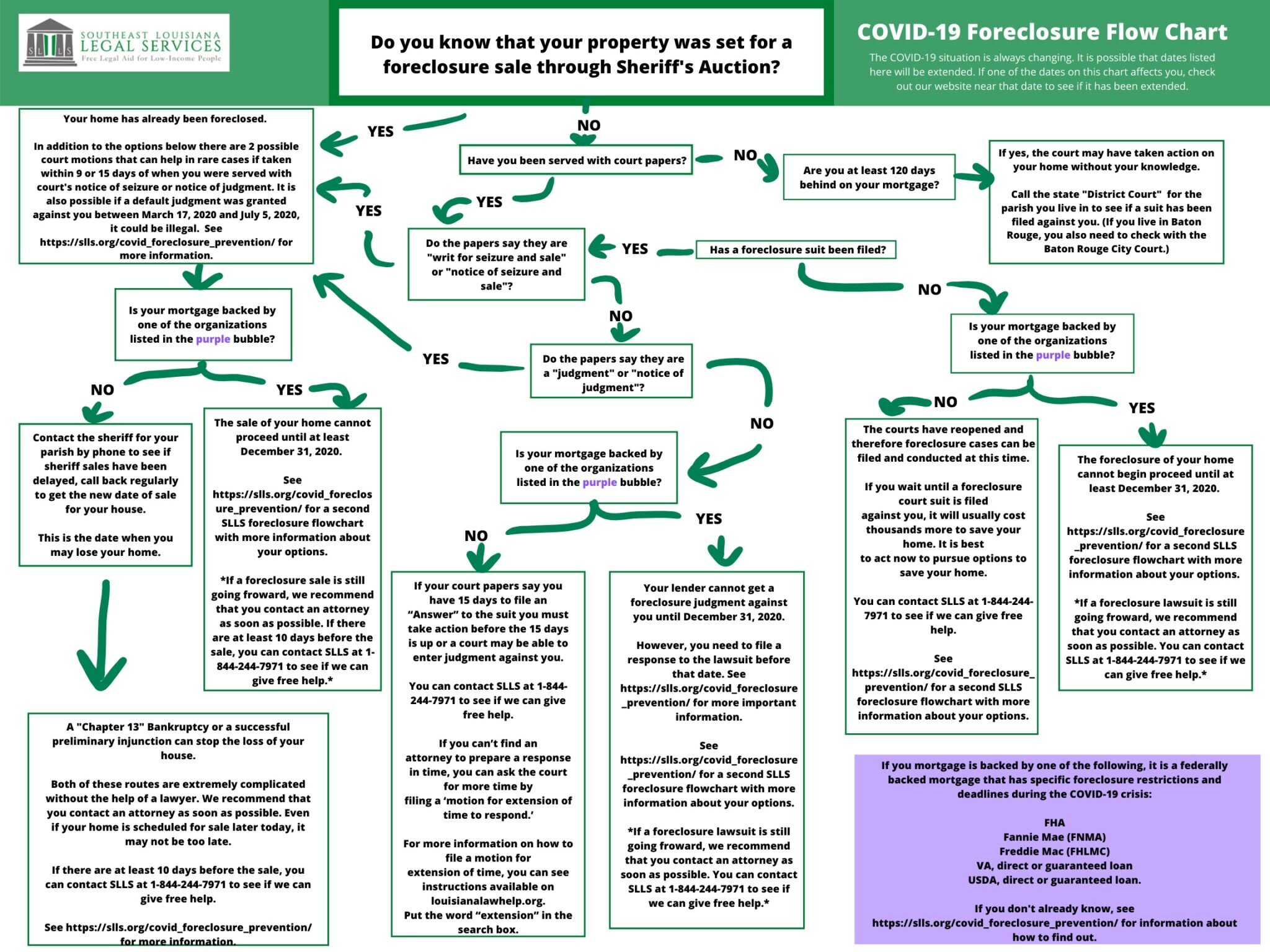Are you in need of a mortgage attorney but not sure where to start? Look no further! In this article, we will provide answers to frequently asked questions regarding mortgage attorneys. Whether you are buying a new home, selling a property, or dealing with complex legal issues in real estate, having a knowledgeable and reliable mortgage attorney by your side can make all the difference. From understanding the role of a mortgage attorney to knowing when to hire one, we will cover it all. So, let’s dive into the world of mortgage attorneys and gain clarity on how they can assist you throughout the mortgage process.

This image is property of www.rocketlawyer.com.
What is a Mortgage Attorney?
Definition of a Mortgage Attorney
A mortgage attorney is a legal professional who specializes in mortgage-related matters. They provide guidance and representation to individuals and businesses involved in mortgage transactions, including buying or refinancing a home and dealing with foreclosure proceedings. These attorneys possess in-depth knowledge of real estate and financial laws, and they work closely with clients to protect their interests throughout the mortgage process.
Roles and Responsibilities of a Mortgage Attorney
The primary roles and responsibilities of a mortgage attorney include:
- Reviewing Mortgage Documents: A mortgage attorney carefully examines all the legal documents associated with a mortgage transaction, including loan agreements, mortgage deeds, and promissory notes. They ensure that the terms and conditions of the mortgage are fair and favorable to their clients.
- Explaining Mortgage Terms and Conditions: Mortgage attorneys help clients understand the complex documents and terms involved in the mortgage transaction. They explain the obligations, rights, and potential risks associated with the mortgage to ensure that clients are fully informed before proceeding.
- Conducting Title Searches: One crucial responsibility of a mortgage attorney is to conduct a thorough title search on the property being mortgaged. This ensures that there are no outstanding liens, judgments, or other legal issues that could affect the client’s ownership rights.
- Negotiating with Lenders: Mortgage attorneys represent their clients during negotiations with lenders, ensuring that the terms of the loan are favorable and meet the client’s needs. They advocate on behalf of their clients to secure more favorable interest rates, loan terms, or repayment options.
- Assisting with Loan Modifications: If a client is facing financial difficulties and needs to modify their mortgage loan, a mortgage attorney can help negotiate with the lender. They can explore options such as loan restructuring or refinancing to make the mortgage more affordable for the client.
- Representing Clients in Court: In case of disputes or litigation related to the mortgage transaction, a mortgage attorney can represent their clients in court. They provide legal advice, prepare legal arguments, and advocate for their clients’ interests.
- Providing Legal Advice and Guidance: Throughout the mortgage process, a mortgage attorney offers legal advice and guidance to their clients. They ensure that their clients fully understand their legal rights and options at every stage.
When Do You Need a Mortgage Attorney?
Buying a Home
When buying a home, hiring a mortgage attorney is advisable to ensure that all legal aspects of the transaction are handled correctly. They can review the purchase contract, negotiate with the seller’s attorney, perform a title search, and ensure that the property is free from any legal issues or encumbrances.
Refinancing a Mortgage
If you are considering refinancing your mortgage, a mortgage attorney can help review the new loan agreement, ensure fair and favorable terms, and handle any legal documentation required for the refinancing process.
Foreclosure Proceedings
If you are facing foreclosure, a mortgage attorney can assist you in exploring alternatives, such as loan modification or negotiating with the lender to prevent foreclosure. They can also represent you in court if legal action becomes necessary.
Title Issues and Disputes
In case of title issues or disputes, such as conflicting ownership claims or unresolved liens on the property, a mortgage attorney can help resolve these matters and protect your ownership rights.
Negotiating Mortgage Terms
If you are not satisfied with the terms offered by a lender, a mortgage attorney can negotiate on your behalf to secure more favorable terms, such as lower interest rates or additional repayment options.
How Do You Find a Mortgage Attorney?
Search Online Directories
Online directories, such as legal association websites or legal service directories, can be a valuable resource for finding reputable mortgage attorneys in your area. These directories often provide information about the attorney’s practice areas, experience, and contact details.
Ask for Referrals
Seek recommendations from friends, family, or colleagues who have recently gone through a mortgage transaction. Personal referrals can often lead to finding trustworthy and reliable mortgage attorneys.
Contact Your State Bar Association
Contacting your state bar association can help you find licensed and qualified mortgage attorneys in your jurisdiction. The bar association can provide information about attorneys specializing in real estate law and provide resources to help you make an informed decision.
What to Consider When Hiring a Mortgage Attorney
Experience and Expertise
When hiring a mortgage attorney, it’s crucial to consider their experience and expertise in handling mortgage transactions. Look for attorneys who have a significant amount of experience in real estate law and have successfully handled similar cases.
Reputation and Track Record
Research the attorney’s reputation and track record. Read client reviews and testimonials, and check if the attorney has any disciplinary actions or complaints filed against them. A reputable mortgage attorney should have a positive track record of satisfied clients.
Communication and Availability
Effective communication is key when working with a mortgage attorney. Ensure that the attorney is responsive to your inquiries, keeps you informed about the progress of your case, and is available to address any concerns or questions you may have.
Fees and Costs
Discuss the attorney’s fees and costs upfront. Some mortgage attorneys charge an hourly rate, while others may offer a flat fee or work on a retainer basis. Understand the billing structure and ensure that it aligns with your budget and expectations.

This image is property of consumeractionlawgroup.com.
What Does a Mortgage Attorney Do?
Reviewing Mortgage Documents
One of the primary responsibilities of a mortgage attorney is to review all the legal documents associated with a mortgage transaction. They carefully examine loan agreements, mortgage deeds, and other relevant documents to ensure that the terms are fair and favorable to the client.
Explaining Mortgage Terms and Conditions
Mortgage attorneys help clients understand the complex terms and conditions of their mortgage. They explain the legal obligations, rights, and potential risks involved in the mortgage transaction, ensuring that clients make informed decisions.
Conducting Title Searches
A crucial task for a mortgage attorney is to conduct a title search on the property being mortgaged. This involves examining public records to ensure that the property is free from any liens, encumbrances, or legal issues that could affect the client’s ownership rights.
Negotiating with Lenders
Mortgage attorneys can negotiate with lenders on behalf of their clients. They have the legal expertise to advocate for more favorable loan terms, such as lower interest rates or extended repayment options.
Assisting with Loan Modifications
If a client is facing financial difficulties and needs to modify their mortgage loan, a mortgage attorney can assist in negotiating with the lender. They can explore options such as loan restructuring or refinancing to make the mortgage more affordable for the client.
Representing Clients in Court
In case of disputes or litigation related to the mortgage transaction, a mortgage attorney can represent their clients in court. They provide legal advice, prepare legal arguments, and advocate for their clients’ interests.
Providing Legal Advice and Guidance
Throughout the mortgage process, a mortgage attorney offers legal advice and guidance to their clients. They ensure that their clients fully understand their legal rights and options at every stage, helping them make informed decisions.
How Much Does a Mortgage Attorney Cost?
Hourly Rates
Some mortgage attorneys charge an hourly rate for their services. The rate can vary depending on factors such as the attorney’s experience, reputation, and the complexity of the case. Hourly rates typically range from $150 to $500 per hour.
Flat Fees
Certain mortgage-related services may be offered at a flat fee. For example, reviewing mortgage documents or conducting a title search may be priced at a fixed rate. Flat fees provide clarity and predictability in terms of cost.
Retainer Agreements
In some cases, a mortgage attorney may require a retainer fee upfront. This is an advance payment that is deposited into an attorney’s trust account and used to cover future legal services. The attorney will bill against the retainer fee as work is performed.
It’s important to discuss fees and billing structures with your mortgage attorney before engaging their services to ensure clarity and avoid any surprises.

This image is property of www.rochesterrealestateblog.com.
Is Hiring a Mortgage Attorney Worth It?
Benefits of Hiring a Mortgage Attorney
Hiring a mortgage attorney can provide several benefits, including:
- Legal Expertise: Mortgage attorneys have specialized knowledge and expertise in real estate law and mortgage transactions. They can navigate complex legal processes and ensure that your interests are protected.
- Peace of Mind: With a mortgage attorney by your side, you can have peace of mind knowing that your rights are being safeguarded. They will guide you through the process, handle legal documentation, and advocate for your best interests.
- Legal Representation: In the event of a dispute or litigation, a mortgage attorney can represent you in court. They will use their legal skills to protect your rights and achieve the best possible outcome.
- Efficient Process: With a mortgage attorney’s assistance, the mortgage process can be streamlined and efficient. They have the knowledge and experience to handle legal documentation, negotiate with lenders, and ensure compliance with all legal requirements.
Drawbacks of Hiring a Mortgage Attorney
While there are many benefits to hiring a mortgage attorney, it’s important to consider the potential drawbacks as well:
- Additional Cost: Hiring a mortgage attorney adds an additional cost to the mortgage transaction. Legal fees can vary depending on the attorney’s rates and the complexity of the case. It’s essential to weigh the cost against the potential benefits before making a decision.
- Simple Transactions: For straightforward and uncomplicated mortgage transactions, such as refinancing with no legal complications, hiring a mortgage attorney may not be necessary. In such cases, the services of a mortgage attorney may not provide substantial added value.
Ultimately, the decision to hire a mortgage attorney should be based on the specific circumstances of your mortgage transaction and your comfort level with navigating the process on your own.
How to Prepare for a Meeting with a Mortgage Attorney
Gather Relevant Documents
Before meeting with a mortgage attorney, gather all relevant documents related to your mortgage transaction. This may include loan agreements, mortgage deeds, title documents, and any correspondence with the lender. Having these documents organized and readily available will help the attorney understand your situation and provide better guidance.
Write Down Questions and Concerns
Make a list of all the questions and concerns you have regarding your mortgage transaction. This will ensure that you address all your inquiries during the meeting and receive the necessary information. Clear communication is key, and writing down your questions in advance will help you stay organized.
Be Prepared to Discuss Financial Information
Mortgage attorneys may need to have a thorough understanding of your financial situation to provide the best advice and guidance. Be prepared to discuss your income, assets, debts, and any other relevant financial information. This will enable the attorney to assess your situation accurately and tailor their advice to your specific needs.
This image is property of images.squarespace-cdn.com.
What to Expect During the Mortgage Process with an Attorney
Thorough Review of Documentation
With a mortgage attorney involved, you can expect a thorough review of all the legal documentation associated with your mortgage transaction. The attorney will carefully examine loan agreements, mortgage deeds, and other relevant documents to ensure that they are legally valid and protect your interests.
Legal Advice and Guidance
Throughout the mortgage process, a mortgage attorney will provide legal advice and guidance. They will explain the legal implications of the transaction, guide you through complex terms and conditions, and address any concerns or questions you may have.
Negotiations and Representations
If there are opportunities to negotiate more favorable terms with the lender, a mortgage attorney will represent your interests during these negotiations. They will use their legal expertise to advocate for your best interests and secure more favorable options, such as lower interest rates or extended repayment terms.
Timely Communication and Updates
A good mortgage attorney will maintain open lines of communication with you throughout the mortgage process. They will provide timely updates on the progress of your case, respond promptly to your inquiries, and keep you informed about any important developments or changes.
Common Mortgage Attorney FAQs
Can I Use a Mortgage Attorney for a Refinance?
Yes, you can use a mortgage attorney for a refinance. Refinancing your mortgage involves legal documentation and potentially negotiating with the lender. A mortgage attorney can review the new loan agreement, ensure fair and favorable terms, and assist with the refinancing process.
Do I Need a Mortgage Attorney if I Already Have a Real Estate Attorney?
While a real estate attorney may have some knowledge of mortgage transactions, it is advisable to hire a specialized mortgage attorney for mortgage-related matters. Mortgage attorneys have specific expertise in handling mortgage transactions, reviewing mortgage documents, and negotiating with lenders.
What Happens if I Don’t Hire a Mortgage Attorney?
If you don’t hire a mortgage attorney, you will be responsible for navigating the mortgage process on your own. You may miss out on important legal considerations, potentially exposing yourself to unnecessary risks or unfavorable terms. Hiring a mortgage attorney can help protect your interests and ensure a smooth transaction.
What Can I Do if I’m Facing Foreclosure?
If you’re facing foreclosure, it’s essential to seek legal advice as soon as possible. A mortgage attorney can help explore alternatives, such as loan modification or negotiating with the lender to prevent foreclosure. They can also represent you in court if necessary.
Can a Mortgage Attorney Help with Loan Modification?
Yes, a mortgage attorney can assist with loan modification. They can negotiate with the lender on your behalf to modify the terms of the mortgage, making it more affordable and manageable for you. A mortgage attorney can guide you through the process and ensure that your rights are protected.
How Long Does the Mortgage Process Take with an Attorney?
The duration of the mortgage process with a mortgage attorney can vary depending on various factors, including the complexity of the transaction and the responsiveness of all parties involved. On average, the mortgage process may take anywhere from 30 to 60 days. Your attorney will provide a more accurate timeline based on your specific circumstances.
Can I Switch Mortgage Attorneys if I’m Not Satisfied?
Yes, you can switch mortgage attorneys if you are not satisfied with the services provided. However, it’s important to carefully consider the reasons for your dissatisfaction and address them with your attorney first. If you decide to switch, ensure that you understand any contractual obligations or fees associated with the transition.
Can a Mortgage Attorney Help with Title Issues?
Yes, a mortgage attorney can help with title issues. They have the expertise to conduct thorough title searches, identify any issues or encumbrances on the property title, and provide guidance on how to address or resolve them.
What Should I Bring to the Initial Consultation with a Mortgage Attorney?
For the initial consultation with a mortgage attorney, it’s advisable to bring any relevant documents related to your mortgage transaction. This may include loan agreements, mortgage deeds, title documents, and any correspondence with the lender. Having these documents readily available will help the attorney assess your situation accurately and provide better guidance.
Can a Mortgage Attorney Help Lower My Mortgage Payments?
Yes, a mortgage attorney can potentially help lower your mortgage payments. They can negotiate with the lender on your behalf to modify the terms of the mortgage, such as reducing the interest rate or extending the repayment period, making the mortgage more affordable for you.

This image is property of www.rochesterrealestateblog.com.

